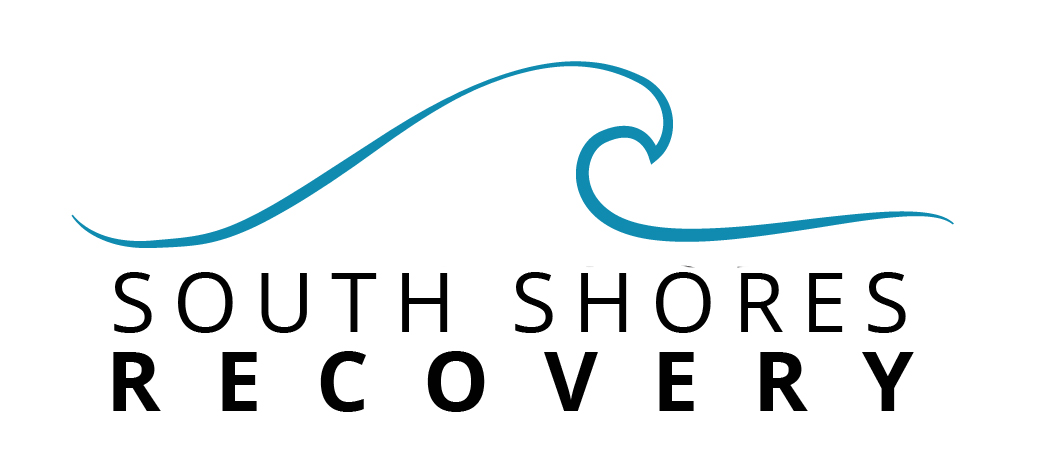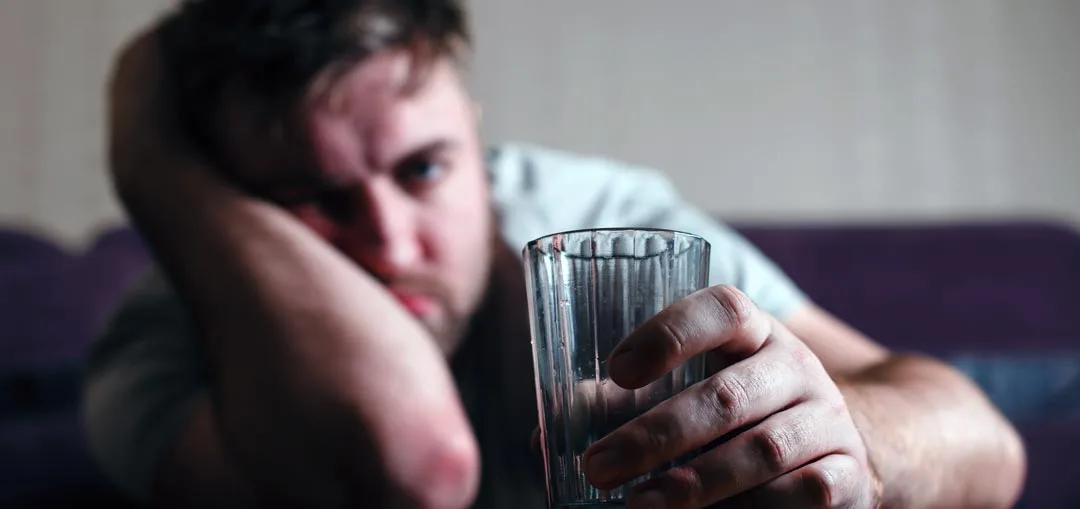Dual Diagnosis Rehab California Programs
Get Proven Treatments for Co-Occurring Disorders at South Shores
Suffering from addiction can make you feel isolated from the rest of the world. Many of those who suffer from substance abuse disorders often feel it mandatory that they live in solitude, feeling a sense of separation from the rest of the world.
Combine this with a mental health disorder like depression, anxiety, or PTSD – and it can feel like there’s no light at the end of the tunnel. If you’ve suffered from these feelings, consider the following:
Over 21 million men and women suffer from co-occurring disorders every year. This means you’re far from alone in your struggles. At South Shores Recovery, we offer a robust dual-diagnosis treatment program that helps thousands of people just like you. And you can be our next success story.
Dealing With Addiction and Mental Health Disorders
Almost 1.2 million men and women in California suffer from some type of serious mental health disorder combined with drug addiction. This means there are 1.2 million candidates who should be receiving dual diagnosis treatment. However, a large portion of the public is still uneducated regarding the specifics of dual diagnosis and the positive implications for those who participate.
Given the fact that drug addiction is already a serious challenge to contend with, the combination of a substance use disorder with a mental health issue compounds the problem.
The Daily “Juggle” and Life for Those Unaware of Dual Diagnosis
Juggling even a somewhat normal life is all but impossible through the murkiness of a co-occurring disorder. Even more discouraging, is many of those who suffering can’t put their finger on what the problem is.
Even those who end up overcoming the addiction still can’t fathom why – even months later – they experience little to no mental healing. Unaware of the underlying condition, most users ultimately turn back to their drug of choice, as self-medicating seems to be their only escape.
The situation above is all too common with those suffering from a co-occurring disorder – outlining the importance of dual diagnosis treatment for California residents, particularly at our specialized programs at South Shores Recovery.
The Idea Behind Dual Diagnosis Rehab California Services
In the past, relapse cases were high for those receiving either addiction treatment or therapy for a mental health disorder separately. Because of a lack of coordinated care, clients receiving treatment for a mental health disorder at a facility specifically designated for mental health issues had no form of relief for their substance abuse challenges, and vice-versa.
Clients may have experienced relief for a short-term period, but eventually – without proper attention to both issues, either the mental health disorder resurfaces or the individual suffers a substance abuse relapse.
Dual-Diagnosis Treatment Fosters New Hope for Recovery
Dual-diagnosis treatment is a fairly new concept in the world of addiction treatment and mental illness. However, without siloing the two disorders, clients are now able to receive help for both issues simultaneously, leading to much lower rates of relapse and higher chances of long-term recovery.
Advances in addiction treatment and remedies for mental health issues have led to treatment breakthroughs, offering new hope for those seeking dual-diagnosis treatment. In California, where substance abuse cases are already growing, the invasion of fentanyl, combined with rising cases of mental health issues has raised the alarm for the need for dual diagnosis treatment centers.
South Shores Recovery is one of the facilities answering the call and is stepping up to provide a comprehensive solution for co-occurring disorders. However, a stigma still exists and many questions are left unanswered for those lacking background knowledge in dual diagnosis addiction treatment.
What Came First: Mental Illness or the Substance Use Disorder?
In Los Angeles alone, over 75,000 people experience homelessness on any given night. Many of these individuals suffer from mental disorders and left uncared for on the streets of Los Angeles, quickly fall victim to drug addiction.
LA can be considered ground zero for co-occurring disorders and potentially has the highest population of those in need of dual-diagnosis addiction treatment. One of the most asked questions received from clients and loved ones from the Los Angeles, California area at South Shores Detox and Recovery, is “Which came first? the mental health disorder or addiction?”
This is a difficult question to answer. And the answer seems to vary depending on the substance of choice. Those entering addiction treatment for opioids commonly seek dual diagnosis treatment for challenges like depression and anxiety.
Clients seeking treatment for methamphetamine addiction at dual-diagnosis treatment centers tend to suffer from challenges like OCD, psychosis, and disassociative identity disorder.
Meth and Dual Diagnosis In California
Currently, methamphetamine is one of the most widely used drugs on the streets of California. It’s all too common to see clients hospitalized after long bouts of methamphetamine addiction suffering from a psychotic episode.
The situation is even worse considering the purity of super-meth – a widespread, potent version of the drug that’s now crossing our borders at an alarming rate. Cases of psychosis, schizophrenia, and disassociative identity disorder are at an all-time high.
And while it doesn’t take a Ph.D. to understand the fact that any mental illness is enhanced through the use of methamphetamine, what’s the driving factor? Clients at dual-diagnosis treatment centers commonly report suffering from some form of mental illness that was diagnosed long before their struggles with addiction.
Does Meth Cause Mental Illness?
However, there is a drastic uptick in cases where substance use disorder came first, with meth as their drug of choice. This clearly points to the onset of mental illness as a result of their addiction. Some clients report experiencing the onset of mental health disorders like psychosis after only a few weeks of consistent methamphetamine abuse.
This alarming increase in co-occurring disorders is a clear sign that dual diagnosis treatment is needed for long-term success.
That said, co-occurring disorders that involve opioids paint a far different picture when it comes to dual diagnosis cases.
Opioids and Co-Occurring Disorders
On the opposite end of the spectrum, many clients who receive dual diagnosis treatment for opioids often report mental health challenges first, before moving on to gradual drug use, and eventually full-blown addiction. One of the most unfortunate aspects of this is that many of these clients don’t even realize they suffer from a mental health disorder.
Unaware, it’s through the use of drugs like heroin and fentanyl that allow these individuals to “come out of their shells.” Two of the most frequently reported mental health challenges during dual diagnosis treatment involving opioids are depression and anxiety – many people suffer from both simultaneously.
Are Opioids a Commonly Used Crutch for Pre-Existing Mental Health Conditions?
What starts with casual use to avoid the harsh reality of social anxiety disorder or withdrawing from friends and family, eventually turns into a full-blown dependence on opioids. Users discover that dabbling with pills or heroin allows them to escape solitude, allowing them to experience a social life, if only for a short time.
The reality is these users are masking the symptoms of their disorder with drugs. This is a textbook example of dual diagnosis and how it manifests in many clients.
Understanding this, the question then becomes – how do they fix it? What goes into dual diagnosis treatment and what can future clients do to prepare themselves for inpatient therapy at a treatment center?
Dual Diagnosis Treatment At a Glance
The most important thing to understand before entering dual diagnosis treatment at South Shores is that you ultimately dictate your failure or success. Programs move at your pace. It’s important to engage with treatment with forward progress in mind – we’ll never make you do anything you don’t want to.
That said, healing entails experiencing discomfort sometimes. To heal our wounds, we first have to discover what causes them. This takes “stepping outside of the box” or “leaving your comfort zone” and finding out what triggers you to use.
Through a unique individualized residential treatment program, we can identify what leads you to engage in substance abuse, uncover the trauma at the center of your mental health disorders, and finally take the steps necessary to begin healing.
So, how exactly do we accomplish this?
The Personalized Approach to Dual Diagnosis Treatment
At our treatment center, the first step to recovery is developing a personalized approach to dual diagnosis therapy. Through one-on-one interviews with our counselors and answering some questions regarding your history of mental health symptoms and substance abuse, we’ll help you discover some new things about yourself.
This may be somewhat uncomfortable at first, but prepare to do some soul-searching regarding the following:
- First, how do you currently feel about your drug use? What symptoms manifest when you’re using? How do you feel when you’re not using? By uncovering the thoughts that manifest during use, we’re able to take the next step in developing a plan for the most effective therapeutic modalities.
- What harmful thoughts and activities are impacting you the most? Be prepared to do a self-assessment regarding how you truly view yourself in your current situation. It’s important to identify the most damaging thoughts and behavior patterns you have so we can move forward in replacing these with productive habits instead. Using activities like replacement therapy, cognitive behavioral therapy, and dialectical behavioral therapy, we can help you make significant progress.
- In cases of PTSD or OCD, and some forms of anxiety or psychosis, exposure therapy plays a significant role in dual diagnosis treatment.
Combining Group Therapy
Group therapy is another major component of dual diagnosis treatment. This allows you to engage with like-minded individuals who suffer from the same disorders you’re experiencing. Through this direct engagement, clients can open up to one another in a way they may not be able to with a doctor or counselor.
This helps develop strong bonds and relationships, giving you support pillars during treatment that help you maintain accountability and learn from shared experiences.
A Holistic Approach to Dual Diagnosis Treatment
At South Shores, we believe a holistic approach to healing is one of the final puzzle pieces to recovery. While traditional forms of therapy mend the mind, holistic practices help the body and soul. Through physical activity and exercises that allow you to tap into your creative side, you’re able to express yourself in alternative ways.
Activities include:
- Surf therapy
- Yoga
- Nutritional therapy
- Art therapy
- and many more
Get Real Results at South Shores Detox and Recovery
If you’re in California and seeking addiction recovery, and are suffering from borderline personality disorder, anxiety, depression, or a number of other challenges – we’re here to help you take the next step in your recovery journey. We’ve helped thousands of clients who are in the same situation that you’re currently in – maybe you’re feeling lost, or like you may never find yourself again.
Just think that in a period of 30-60 days from now, you can become a completely different person and completely reclaim your life and independence. Reach out to our admissions team today, and let us help you take that crucial first step towards recovery.
Contact us




